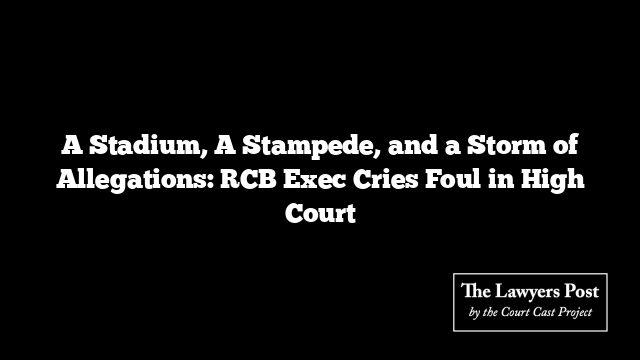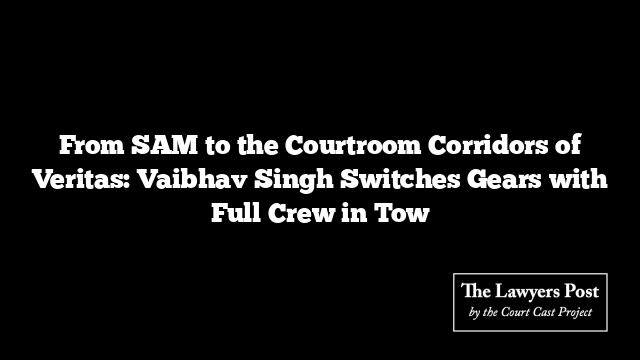In the charged halls of the Karnataka High Court, a fiery debate unfolded over who should bear the blame for the tragic stampede at Bengaluru’s Chinnaswamy Stadium on June 4. Eleven lives lost and dozens injured, but now it’s the aftermath that’s on trial.
At the center of the storm stands Nikhil Sosale, the marketing head of Royal Challengers Bengaluru (RCB), who finds himself behind bars along with three others tied to the event management company DNA. His legal team insists: the arrests weren’t about justice—they were about optics.
Senior Advocate Sandesh Chouta, appearing for Sosale, accused the State of selective targeting under pressure from the highest office. “Why stop with us?” Chouta thundered. “Freelancer, employee, or executive—does affiliation alone warrant arrest?” He didn’t hold back, suggesting Chief Minister Siddaramaiah’s push for accountability may have been more political theatre than legal necessity.
Alongside Sosale, DNA’s Vice-President Sunil Mathew, Operations Manager Kiran Kumar S, and freelancer Shamant NP Mavinakere have all petitioned against their arrest. Chouta scoffed at the FIR’s logic: “By that reasoning, everyone—RCB, DNA, KSCA—are fair game. But where’s the actual evidence of intent?”
He pointed to the apparent halt in arrests following initial detentions, even though several state officials were either suspended or transferred in the fallout. “Was there criminal intent, or just tragic negligence? And if it’s the latter, aren’t we all in the same boat?” he asked the Court.
But the State wasn’t ready to yield. Advocate General Shashi Kiran Shetty pushed for more time, citing a sleepless night at the office. “My team’s been at it since 5 AM, we need until tomorrow,” he said, resisting the request for Sosale’s interim bail.
Justice SR Krishna Kumar nodded in agreement, adjourning the hearing to the next day.
In the background looms the heart of the catastrophe: nearly half a million people had swarmed the stadium hoping to celebrate with their team after RCB’s first IPL win in nearly two decades. The venue’s capacity? Just 33,000.
The State blames the organisers for failing to coordinate, while organisers allege the government didn’t prepare for a crowd that was, perhaps unwittingly, invited. RCB’s lawyer claimed the Chief Minister himself had sparked the frenzy by opening the floodgates with a public invite. The State countered with a digital smoking gun—RCB’s tweet offering free passes without official clearance.
As blame ricochets between cricket, corporations, and the corridors of power, the High Court isn’t just adjudicating a legal matter—it’s picking apart a public tragedy. A suo motu case initiated by the Court is running in parallel, with the State promising to submit its findings in a sealed cover by Thursday.
Whether this case delivers justice or simply becomes a study in institutional finger-pointing remains to be seen. But for now, the pitch is political, the stakes are legal, and the crowd—silenced by grief—watches on.





